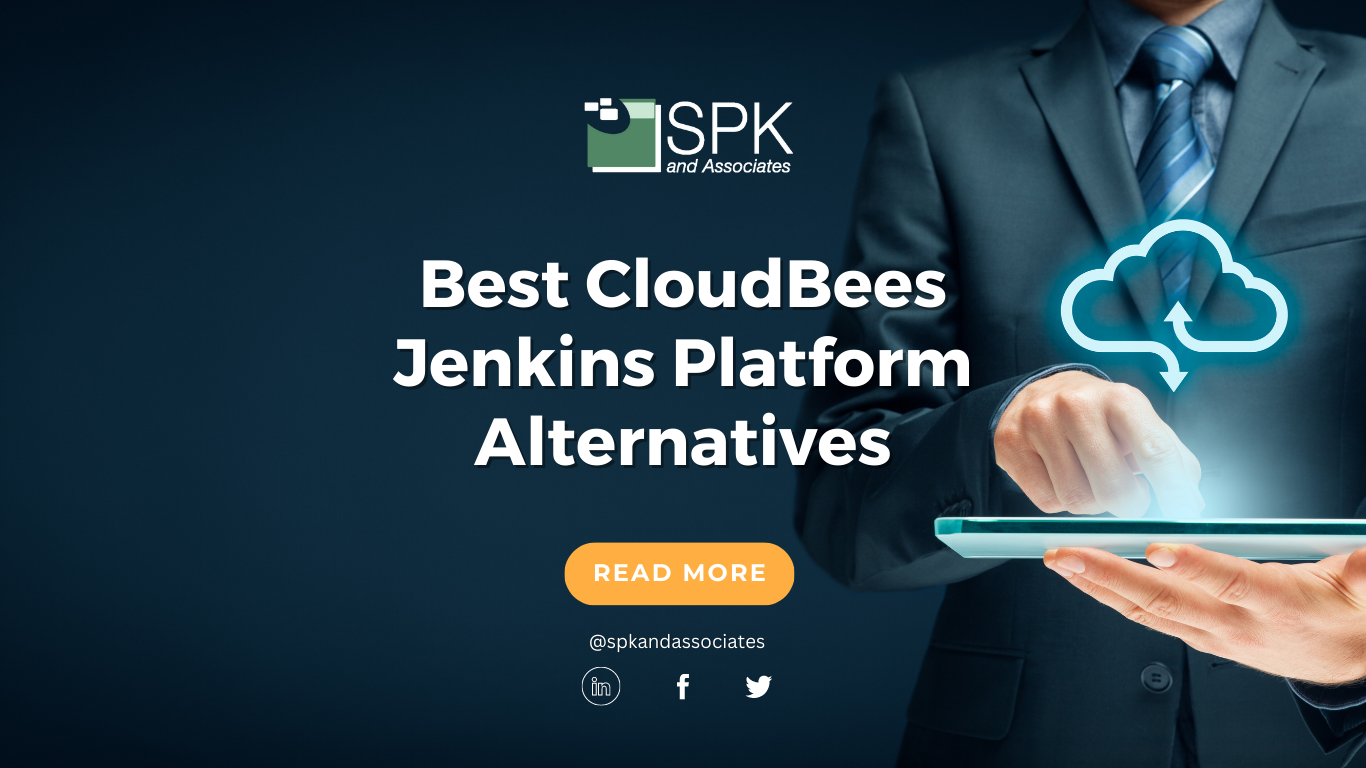Change is on the horizon for organizations relying on the CloudBees Jenkins Platform (CJP). With CJP now designated as a legacy product, a migration to CloudBees CI or an alternative CI solution is imperative. In this blog post, we will cover the ‘need-to-know’ info of the CJP end-of-life deadline and explore the top contenders for its replacement. We will also provide an in-depth analysis of prominent CI software providing options for CloudBees Jenkins Platform alternatives. As a provider of licenses and services for four of the six CJP alternatives listed, we are uniquely positioned to offer unbiased insight.
Understanding the CloudBees Jenkins Platform Migration Deadline
With the maintenance lifecycle of the CloudBees Jenkins Platform coming to an end, you’ll need to proactively plan for a timely migration to a new CI/CD solution. By adhering to the migration deadline, you’ll also avoid disruptions and capitalize on the latest features and security enhancements offered by modern CI/CD tools. Read more about the CloudBees end-of-life deadline here.
Factors to Consider When Choosing CloudBees Jenkins Platform Alternatives
Functionality and Scalability
Firstly, when choosing CloudBees Jenkins alternatives, evaluate the capabilities of potential CI/CD tools to ensure they align with your organization’s specific requirements. Then consider features like pipeline automation, extensibility through plugins, scalability, and support for parallel and distributed builds. A robust CI/CD tool should streamline your software development processes and provide the necessary functionality to meet your needs.
Security Measures
Next up, in an era of increasing cybersecurity threats, prioritizing security is clearly paramount. Protecting your codebase and ensuring data privacy should be top priorities during the migration process. So, seek a CI/CD tool that incorporates and prioritizes strong security measures, including:
- Role-based access control.
- Secure code storage.
- Integration with vulnerability scanning tools.
Ease of Migration
Finally, consider the ease of transitioning to the CloudBees Jenkins Platform alternatives. Look for migration guides, documentation, and community support that can facilitate a smooth and efficient transition. Taking advantage of professional services and support can further simplify the migration process. Additionally, you’ll ensure minimal disruptions and downtime.
Exploring Top Options For A CloudBees Jenkins Platform Alternative
Now, let’s dive into the top options for CJP (CloudBees Jenkins Platform) alternatives.
Top Contenders for CloudBees Jenkins Platform Alternatives:
CloudBees CI: The Natural Successor
As the successor to CloudBees Jenkins, CloudBees CI offers a smooth transition for existing users. Additionally, it provides a wide range of features to support efficient software delivery, including pipeline automation, plugin extensibility, and robust security measures. Also, one of the significant advantages of CloudBees CI is its ability to leverage the expertise and services offered by CloudBees, simplifying the migration process and ensuring a successful transition.
Key features of CloudBees CI include:
- Support for containerized applications.
- Pipeline visualization and analytics.
- Advanced security and compliance.
- Role-based access control.
- Integration with popular development tools like GitHub, GitLab, and Bitbucket.
Jenkins: Unparalleled Flexibility
Jenkins is renowned as the leading open-source CI/CD tool, offering unparalleled flexibility and customization options. Its extensive plugin ecosystem allows users to tailor CI workflows according to their unique requirements. And, as Jenkins is an open-source automation server, it serves as the central hub for build and continuous integration processes. But, while Jenkins provides immense flexibility, it may require more manual configuration and expertise to set up and maintain.
Key features of Jenkins include:
- Easy installation and upgrade on various operating systems.
- A simple and user-friendly interface.
- Extensibility through community-contributed plugins.
- Support for distributed builds.
- Notification capabilities.
Bamboo: Seamless Integration with Atlassian Suite
Bamboo, an Atlassian CI/CD tool, offers seamless integration with the Atlassian suite of development and collaboration products. It features an intuitive interface, easy configuration, and reliable builds. Bamboo automates the management of software application releases, creating a continuous delivery pipeline. It covers the building, functional testing, versioning, tagging releases, and deploying new versions.

Bamboo’s key features include:
- Support for remote build agents.
- Parallel testing for faster feedback.
- Image creation and registry integration.
- Per-environment permissions
TeamCity: User-Friendly and Feature-Rich
Developed by JetBrains, TeamCity stands out for its user-friendly interface and seamless integration with popular development tools. It offers comprehensive features such as detailed reporting, parallel and distributed builds, and fine-grained access control. TeamCity is a versatile continuous integration tool that helps build and deploy different types of projects, supporting both Windows and Linux servers.
Noteworthy features of TeamCity include:
- Multiple ways to reuse project settings.
- Parallel builds on different environments.
- Easy customization and extension options.
- Robust user management capabilities.
CircleCI: Simplicity and Scalability in the Cloud
CircleCI is a cloud-based CI/CD platform known for its simplicity and ease of use. It provides fast and efficient builds, seamless scalability, and integration with major version control systems. CircleCI enables automation across the entire pipeline, from code building to testing and deployment. It offers integrations with GitHub, GitHub Enterprise, and Bitbucket, allowing for automatic builds triggered by code commits.
While CircleCI offers a user-friendly experience, recent security concerns should be evaluated before making a decision.
Key features of CircleCI include:
- Container-based or virtual machine builds.
- Easy debugging, automated parallelization.
- Personalized notifications.
- Branch-specific deployment.
- High customizability.
One potential concern for CircleCI is that they had a security incident in January of 2023, which they detailed in this blog. If you decide to move forward with CircleCI, make sure you read the information about this incident first.
Key Steps for CloudBees Jenkins Platform Migration:
1. Evaluate Your Requirements:
Assess your organization’s specific requirements for a CI/CD solution. Consider factors such as scalability, automation capabilities, security features, ease of use, and integration with your existing toolchain. This evaluation will help you determine the most suitable replacement for CloudBees Jenkins Platform.
2. Explore Alternative CI/CD Solutions:
Research and explore alternative CI/CD tools that align with your requirements. Consider well-established options like CloudBees CI, Jenkins, TeamCity, Circle CI, Bamboo, and GitLab. These tools offer a wide range of features, integrations, and support, making them potential candidates for your migration.
3. Plan and Execute the Migration:
Create a comprehensive migration plan that outlines the necessary steps, including setting up the new CI/CD tool, configuring pipelines, and transferring existing jobs and configurations. Make sure to involve key stakeholders and allocate sufficient resources for a successful migration. Utilize resources and documentation provided by the tool’s vendor, as well as expert services if required.
4. Test and Validate:
Thoroughly test and validate your new CI/CD setup to ensure it meets your expectations and effectively supports your software development workflows. Verify that all necessary integrations are functioning correctly and conduct rigorous testing to ensure a smooth transition.
5. Train and Support Your Team:
Provide training and support to your development team to ensure they are proficient in using the new CI/CD tool. Offer resources, documentation, and hands-on training sessions to help them adapt to the new environment and take full advantage of the tool’s capabilities.
Conclusion
CloudBees Jenkins Platform reaches end-of-life in June 2023. To stay ahead of the change curve and adopt modern and secure ways of working, you need to migrate to an alternative.
Prepare for the end-of-life of CloudBees Jenkins Platform by following a structured migration plan and leveraging expert assistance from our team of migration experts.






